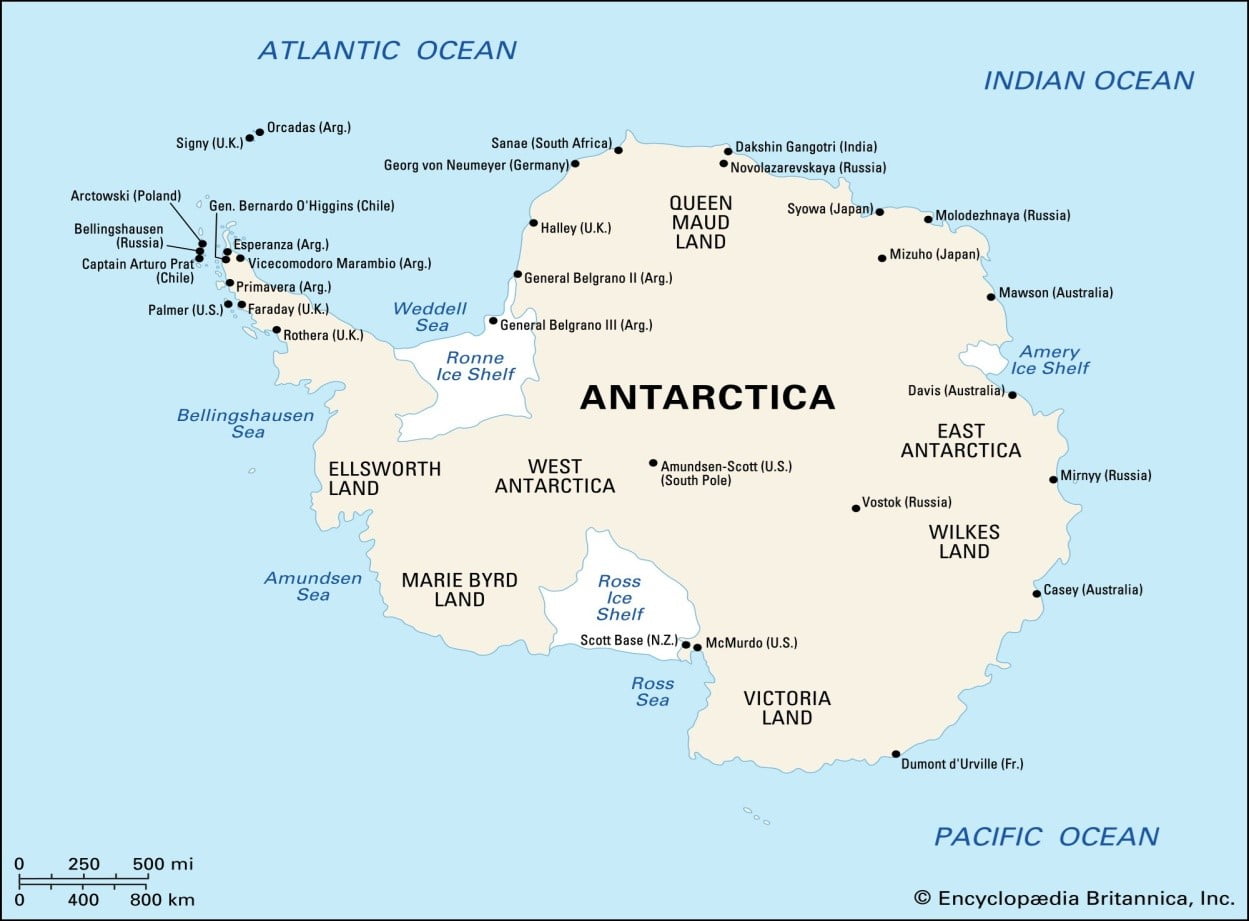Environment & Ecology, Governance, Indian Polity & Constitution
In News: The Indian Antarctic Bill, 2022 was cleared by the Lok Sabha in the ongoing monsoon session.
- The Bill seeks to give effect to the Antarctic Treaty, the Convention on the Conservation of Antarctic Marine Living Resources, and the Protocol on Environmental Protection to the Antarctic Treaty.
- It also seeks to protect the Antarctic environment and regulate activities in the region.
Key Features of the Bill
Applicability:
- The provisions of the Bill will apply to any person, vessel or aircraft that is a part of an Indian expedition to Antarctica under a permit issued under the Bill.
Central committee:
- The central government will establish a Committee on Antarctic Governance and Environmental Protection.
- The Committee will be chaired by the Secretary of the Ministry of Earth Sciences.
- The functions of the Committee include:
- granting permits for various activities,
- implementing and ensuring compliance of relevant international laws for protection of Antarctic environment,
- obtaining and reviewing relevant information provided by parties to the Treaty, Convention, and Protocol, and
- negotiating fees/charges with other parties for activities in Antarctica.
Need for permit: permit will be required for various activities such as:
- an Indian expedition to enter or remain in Antarctica,
- a person to enter or remain in an Indian station in Antarctica,
- a vessel or aircraft registered in India to enter or remain in Antarctica,
- a person or vessel to drill, dredge or excavate for mineral resources, or collect samples of mineral resources,
- activities which may harm native species, and
- waste disposal by a person, vessel or aircraft in Antarctica.
- Before a permit is granted by the Committee, the applicant has to carry out an environmental impact assessment of the proposed activities.
- Moreover, a permit must not be granted unless a waste management plan has been prepared for the expedition by the Committee.
Prohibited activities: The Bill prohibits certain activities in Antarctica including:
- nuclear explosion or disposal of radioactive wastes,
- introduction of non-sterile soil, and
- discharge of garbage, plastic or other substance into the sea which is harmful to the marine environment.
Offences and penalties: The Bill specifies penalties for contravention of its provisions.
Other important provisions
- It also directs creating a fund called the Antarctic fund that will be used for protecting the Antarctic environment.
- The Bill also extends the jurisdiction of Indian courts to Antarctica and lays out penal provision for crimes on the continent by Indian citizens, foreign citizens who are a part of Indian expeditions, or are in the precincts of Indian research stations.
Antarctic Treaty
- The Antarctic treaty remains the only example of a single treaty that governs a whole continent.
- The Antarctic Treaty was signed between 12 countries in Washington on 1st December 1959 for making the Antarctic Continent a demilitarized zone to be preserved for scientific research only.
- The twelve original signatories are Argentina, Australia, Belgium, Chile, France, Japan, New Zealand, Norway, South Africa, the Union of Soviet Socialist Republics, the UK and the US.
- It entered into force in 1961 and has since been acceded by many other nations.
- Currently it has 54 parties. India became a member of this treaty in 1983.
Its objectives are simple yet unique in international relations. They are:
- to demilitarize Antarctica, to establish it as a zone free of nuclear tests and the disposal of radioactive waste, and to ensure that it is used for peaceful purposes only;
- to promote international scientific cooperation in Antarctica;
- to set aside disputes over territorial sovereignty.
- The Treaty parties meet each year at the Antarctic Treaty Consultative Meeting.
- They have adopted over 300 recommendations and negotiated separate international agreements, of which three are still in use.
- These, together with the original Treaty provide the rules which govern activities in Antarctica.
- Collectively they are known as the Antarctic Treaty System (ATS).
The three international agreements are:
- Convention for the Conservation of Antarctic Seals (1972)
- Convention on the Conservation of Antarctic Marine Living Resources (1980)
- Protocol on Environmental Protection to the Antarctic Treaty (1991).

Source: Indian Express











